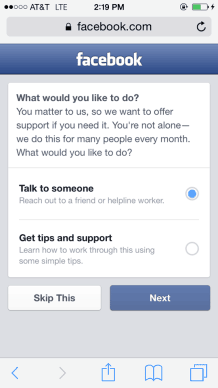In our world inundated with technology, packed to the brim with responsibility, and overflowing with stress, it’s no wonder that so many millions of us can’t get to sleep. Even if we do get to sleep, staying asleep presents a whole new set of problems altogether. Some of us toss and turn, wake up in the middle of the night, and no matter how many sheep we count, just can’t seem to drift off into Neverland.
According to WebMD, 1 in 4 U.S. workers suffers from insomnia, and this is just one type of sleep disorder. According to an article from Stanford Medicine, there are over 100 different types of sleep disorders. This means that you likely know someone that suffers from a sleep problem, or you might have one and not even know about it.
We live in times where having a sound sleep is as rare as seeing someone talking on a flip phone, to put it into perspective. With so many distractions around us that prevent us from dozing off to sleep peacefully, how in the world can we actually get a good night’s rest? Well, it all starts by eliminating things that can steal our sleep before we even hit the sheets.
Here are 5 things that are making you lose sleep:
1. You play on your phone or computer before bed.
Countless studies have shown that the bright lights emitted from phones and computers can delay sleep for hours past your bedtime. The bright blue lights from tablets, phones and computers basically tell our brains that we need to stay awake, not go to sleep. Think about it: out in nature, the sun would tell our bodies to wake up and get our day started. So, with all these artificial lights today, we stay awake longer and longer because our brains don’t know the difference between natural and unnatural light. However, you can make things easier on yourself by turning off electronics a few hours before bed, and keeping them off during the night so they don’t awaken you with notifications.
2. You drink caffeine late in the day.
Caffeine sends a jolt of energy through our bodies that helps us to stay awake and feel refreshed. Drinking a few cups in the morning to help us get our day started won’t really do much harm; however, downing a cup or two close to bedtime will keep you awake well into the night. If you do drink caffeine, make sure to avoid drinking it five or six hours before bed, as it will stay in the bloodstream for hours after consumption, forcing sleep to evade you once again.
3. You think about all the chores you didn’t get done while laying in bed.
Another thing that causes insomnia is lying in bed contemplating all the things you didn’t get done, the meaning of life, and all sorts of other things that keep your mind active and awake. We have a sleep deprived world, largely because many of us don’t know how to shut off our brains. Before bed, try doing something relaxing that will tell your brain to slow down for the day, such as meditating, yoga, taking a hot bath, or doing deep breathing exercises. Watch how quickly you fall asleep after getting your mind in the zone; then, watch how effortlessly a bedtime relaxation routine develops.
4. You think so much about losing sleep, that it actually happens.
This can truly become a self-fulfilling prophecy, because when we lose sleep, we tend to fear it happening again and again. So, guess what happens? Since we begin to obsess over our lack of sleep, our minds create this scenario over and over again without us even doing much to make it happen. Remember, your thoughts have immense power, so instead of focusing your attention on what you don’t want to happen, try to turn your awareness toward what you do want to occur. However, don’t obsess too much about getting to sleep, either, because then it will seem like a chore to fall asleep at night.
Simply ease your way into it, and do whatever feels most relaxing to you before bed.
5. You don’t exercise.
Exercise releases endorphins that promote relaxation and overall well-being, and many studies have found a link between a good night’s sleep and physical activity. Our bodies were made to move, so if you live a sedentary lifestyle, all that energy is just sitting in your body, unable to be released. Could it be that so many people have sleep problems because they have pent up energy in their bodies? Possibly so. If you find that you have trouble getting to sleep, it might be as simple as going for a 30-minute brisk walk a few times a week in order to get your beauty rest.





 Final Thoughts on Learning How to Let Go of Worry
Final Thoughts on Learning How to Let Go of Worry

